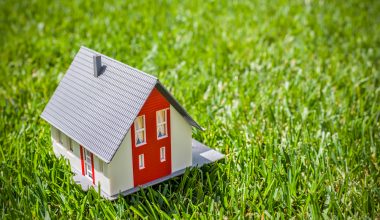1031 Exchange properties
1031 exchange property got its name from IRS section 1031 of the U.S. internal revenue code. This article discusses 1031 exchange properties with their properties for sale, a list of the 1031 exchange properties, DST, sales in Florida, and NNN. Before we continue, let’s discuss the meaning of “Exchange”.
Exchange is the process of doing or giving something to someone to get something from the other person in return. A typical example is a trade by barter.
What Is 1031 Exchange Properties?
1031 exchange properties are an investing tool that allows investors to swap out an investment property for another. It defers capital gains or losses or capital gain taxes. These taxes will be paid later by you when you do the exchange at the time of sale. This process is for real estate agents, investors, title companies, etc. It is a real estate investment that deals with land, buildings, etc. for investment. It is an exchange between two people that want to swap property for another.
When an investor exchanges real property for an investment of the same type, it is known as a like-kind or starker exchange. The IRS Section 1031 of the U.S. Internal Revenue Code allows investors to defer paying capital gain taxes when they sell an investment. There is to be more free capital for investment in the replacement property.
Like-Kind Investment Rules
To avoid capital gain taxes, investors that want to exchange properties should ensure that the property they want to exchange has the same quality or higher value than the one they want to replace. And the replacement property should be of the same value as the exchange.
The investors must identify a replacement property after 45 days of the sale or 180 days of the closing on the relinquished property and before your tax return is due. These are the base timing rules for the 1031 exchange. The properties can be of use in exchange for investment, but not for resale or personal use. The properties must be in your hands for a minimum of two years of ownership. You can rent the property to a person for a dwelling for 14 days or more at a fair rental, and for a personal stay for 14 days or less if rented at a fair rental before investment.
How Do 1031 Exchange Properties Work?
There are no limits on how you can do a 1031 exchange. The investment can be profitable in each swap depending. The investor can avoid paying tax until the investor sells for cash years later, depending. When paying, you pay only one tax, the long-term capital gains rate, which is 20%, 15%, or 0% for the taxpayer, depending on the income. The 0% is for some low-income investors.
Investments can be between two investors that want to swap properties for another. The chances of getting a person that wants to swap properties with you are low and can cause a delay in the exchange. At this point, the investor gets an “intermediary”(a person that replaces the investor to make the investment). Also called a middle man, who holds the cash and sells the properties that the investor wants to sell. And then uses the money to buy the replacement property for the investor.
The investor can swap one property for three properties that are equal to the investor’s swap, regardless of the market price, and maintain its depreciation. Investment in a 1031 exchange is legal anywhere if the area has 1031 exchange laws. But it is mainly in the U.S.A. An investment must take place at that particular place of exchange and not on different sides. A 1031 exchange can have title to a wide variety of properties.
1031 Exchange Properties for Sale
The sites of the 1031 exchange properties are mostly in the U.S. The 1031 exchange helps investors build profit and invest. There are many states and areas that have ventured into 1031 exchange properties. They invest, make sales, and exchange properties. They are places you can find 1031 exchange properties, for example, Florida, e.t.c., and the types of properties for sale, like land, etc.
1031 Exchange Properties List
The 1031 exchange properties list includes the type of investment the investor or intermediary makes. They are beyond real estates, like;
- Land
- Industries
- Restaurants
- Hotels
- Apartments
- Residential Rentals
- Water and ditch rights
- Medical and care facilities
- Retails
- offices, etc.
The list of 1031 exchange properties is exchanged to get another property of equal value or bought for investment. They can exchange properties anywhere where the 1031 exchange properties list takes place.
DST 1031 Exchange Properties
A DST (Delaware statutory trust) is a separate entity for investors in real estate and was created as a trust under the Delaware statutory trust, in 1031 exchange properties. That has an interest and a right to receive distributions in the trust, and it is legal, which holds the interest of real estate property or investment properly assured. It also defers capital gains tax from the sale of a rental property into a real estate portfolio. Its exchange of property has a triple net (NNN) of properties like multifamily apartment buildings, e.t.c. for which the tenant has the responsibility for the property taxes, insurance, etc. It has some benefits when using DST 1031 exchange properties, as stated below;
#1. It Is Less Expensive
Getting an expensive property in DST is easier and cheaper. It gives room for investors to purchase properties with a low income, depending on the property, and start investing.
#2. No Need to Sign a Loan
In DST 1031 exchange properties, the property the investor wants, if it is to be in the loan, don’t need the investor to partake in the mortgage loan, nor does it need the investor’s personal documentation for the loan. The trust is the only entity that is for the mortgage loan and is non-recourse to the investor.
#3. No Limit to Closing Costs
The investor can take a long time to replace the property after the sale of the property, with no limit to the amount of time the investor can replace the property, as long as it takes no more than a year.
#4. No Maintenance of the Property
In DST, investors don’t worry about the management of the properties; they hand them over to the trust, a professional team, or real estate managers, and the management of a rental is left to the tenant to maintain, insure, etc.
1031 Exchange Properties for Sale in Florida
Florida is one of the states that are based in the United States of America (U.S.A.). 1031 exchanges provide a tax-saving opportunity for the sale of properties in Florida, especially their farms, ranches, etc., through tax deferral under Section 1031 of the Internal Revenue Code (IRC). It permits properties for trade, productive use, etc. to be exchanged for other like-kind real property; there is no limit to the exchange of agricultural properties.
The state defers capital gains tax and recaptures depreciation tax when the replacement property is acquired within 180 days of the sale of the old property. Their exchange is a forward exchange for vacation rental; referrals are received from clients, realtors, qualified intermediaries, et cetera, and they are the second-best at doing 1031 exchanges in the U.S.A. They exchange real estate properties like land, water and ditch rights, rental properties, industries, etc.
You can see the kind of sales you want in Florida here.
Read also: 1031 Exchange Florida
NNN 1031 Exchange Properties
NNN 1031 exchange properties, also known as a triple net lease, are applied to rental properties whereby the tenants are responsible for paying the property taxes, insurance, structural maintenance, e.t.c. in addition to the rent received by the land owner as net rent.
They are long-term, in the range of 10 to 25 years, with a cost of living increase added to the lease. Examples of NNN 1031 exchange properties’ tenants are Apple, Microsoft, etc. It is mostly made for commercial properties.
In NNN 1031 exchange properties, the tenants pay the taxes, like maintenance fees, etc., as agreed with the land owner, but once it is a single tenant and the tenant can’t pay and leaves, the land owner starts to pay the taxes.
What Type of Properties Benefit From a 1031 Exchange?
A “like-kind” 1031 exchange can involve any type of real estate that is currently being used for commercial or investment purposes: 1031 exchanges are typically only associated with large real estate transactions or commercial real estate transactions in the minds of many investors and real estate professionals.
Can You Live in a 1031 Exchange Home?
Because it is your property, a property you acquired through a 1031 exchange can be used as your primary residence. However, due to the fact that the Internal Revenue Service (IRS) has implemented certain limitations that would justify all tax deferrals and exemptions provided by Section 1031, it is possible that you will not be able to move into your property right away.
What Is the Basis of Property in a 1031 Exchange?
The basis of property acquired through a Section 1031 exchange is equivalent to, but may differ from, the basis of property relinquished through the exchange. This preservation of the deferred gain for later recognition is accomplished through the transfer of basis from the property being given up to the property being acquired in its place.
How Long Do You Have to Hold a 1031 Exchange Property?
If a property is acquired through a 1031 Exchange and is later converted into a primary residence, the owner is required to keep the property for a period of at least five years before selling it without being subject to full taxation on the sale of the property.
Can I Recoup My Initial Down Payment on the Property I Am Selling?
Actually, the position that the IRS takes is that the first money out belongs to them. In other words, you will be subject to taxation if you are reimbursed for the initial money you invested in the business. There is a possibility of receiving money; however, any money that is received will be subject to taxation.
Is It Ok to Buy the Property That My Business Occupies as a Tenant?
It is possible for your company to be a tenant in its own building, but this will depend on the manner in which it conducts itself as a tenant in the building. It will be essential for the success of your company to pay the rent for the space at the current market value, and it is essential that the company not receive special treatment that is not provided to the other tenants.
Is It Possible to Convert an Investment Property Into a Primary Residence and Eventually Sell the Property Applying Section 121?
The Internal Revenue Service is aware that a person’s life can take unexpected turns and, as a result, a property’s status can evolve over time. Because of this, it is not impossible for a rental property to be converted into a primary residence at some point in the future. If a property is acquired through a 1031 Exchange and is later converted into a primary residence, the owner is required to keep the property for a period of at least five years before selling it without being subject to full taxation on the sale of the property.
Conclusion
A 1031 exchange is a good thing to do because it helps build wealth and encourages investment, but if you don’t know much about it, you can find a professional or a well-experienced intermediary that will guide you in your investment. If you are to venture into it, you must be careful to know its existence and be cautious.
1031 Exchange Properties FAQs
What qualifies a property for a 1031 exchange?
1031 exchange properties do with business or investment. Therefore any property that is good for a real investment can qualify for 1031 exchange properties.
How do I avoid capital gains tax?
- Do a long-term investment.
- Take advantage of tax-deferred retirement plans.
- Implement capital losses to offset gains.
- Always look out at your holding periods.
- Finally, pick your cost basis.
Can I buy a cheaper property in a 1031 exchange?
In 1031 Exchange properties it allows a taxpayer to defer 100% of their capital gain tax liability. In order to acquire this, the exchanger must buy a new replacement property that is equal to or greater than the value of the property sold and reinvest all of the proceeds from the sale of their old property.
What is the capital gains tax rate for 2022?
The Capital Gains for 2022 Tax Rate Taxable for Income (Single)Taxable Income for 0% is $41,675 and $83,350 for the (Married Filing Jointly). For15% $41,675 to $459,750 for the single and $83,350 to $517,200 for the married. 20% for the single $459,750 above and for the married $517,200 above.
How do I find a 1031 exchange property?
You can make find a 1031 exchange property by making research online, and seeking professional help with 1031 exchange properties.
Related Articles.
- CUSTODIAL ACCOUNT: Best Custodial Accounts 2023
- Currency Swap: Basis, Examples, Rates & How it Works
- AVERAGE HOME INSURANCE COST: Best 2023 UK Practices and Rates (Updated)
- Crypto Exchange: How to Pick the Best & Safest Options
- MORTGAGE RATES FOR INVESTMENT PROPERTY: Current Mortgage Rates for Investment Property
- BUSINESS RISK: How to Manage Risks in Business






